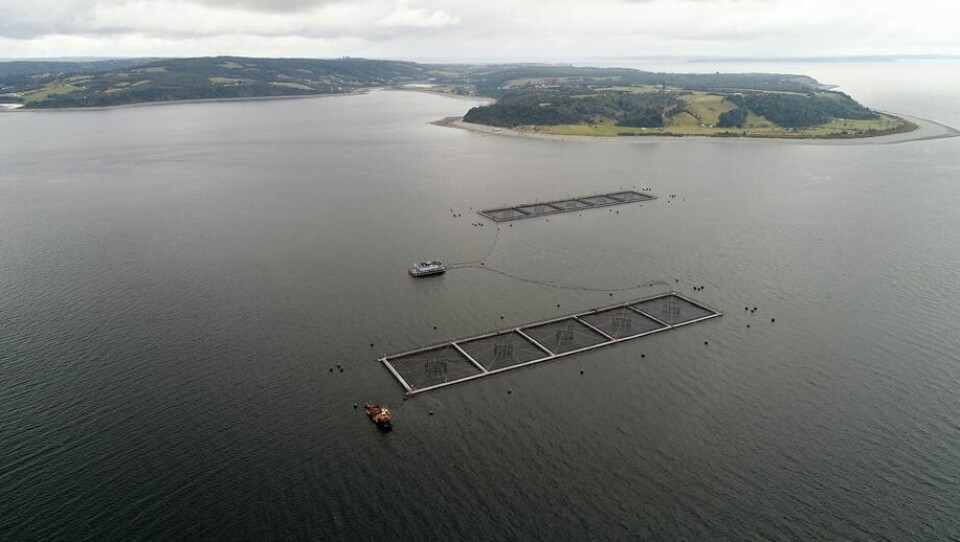
Mowi Chile to fight £5.1m fine imposed for 2018 fish escape
Mowi has said it intends to challenge a huge fine imposed by Chile’s Superintendency of the Environment (SMA) following the escape of 690,000 Atlantic salmon in July 2018.
The fish farmer has been fined 5.3 billion pesos (£5.1 million) after the SMA ruled that the escape occurred because Mowi had not maintained appropriate security conditions or equipment of optimal quality and resistance at the Punta Redonda farm in the Calbuco commune in Los Lagos region.
The Superintendent of the Environment, Cristóbal De La Maza, said: “This Penalty Resolution notified today closes a long and complete investigation process on our part.
“We want to give the signal that all those companies that do not respect the regulations and, in addition, infringe them causing environmental damage, as in this case, will be punished in a proportional manner.”

‘Detriment to aquatic system’
De La Maza added that “without a doubt, massive escapes of salmon such as the one registered, constitute an impairment and detriment to the aquatic ecosystem by introducing a new predator that feeds on fish, many of these in a state of conservation and that also compete for food with native species”.
The SMA chief said the escape, which happened during a storm, also caused a decrease in the number of hydrobiological species in the Reloncaví Sound due to predation by the farmed salmon, and the alteration of the trophic chain.
Under Chilean law, environmental damage is assumed to occur if fewer than 10% of escaped salmon are recaptured. Mowi, which paid a bounty to local fishermen for salmon that had been caught, claims that 27.23% of the escaped fish were recaptured.
But Chile’s state aquaculture agency, Sernapesca, says that Mowi managed to recapture only 5.54% of its 690,277 escaped fish, which had an average weight of 3.4kg.
Mowi argues that the escape did not cause environmental damage, and that the SMA fine “is based exclusively on a presumption of a legal nature that has no scientific basis”.
Additionally, “it is public knowledge that a large quantity of salmon was caught by third parties and later sold en masse in the informal trade, a fact that unfortunately was not considered by the authorities”.
“Mowi Chile made all the efforts within its power to recapture the species, in addition to that made by the informal fishing sector. The reduction of specimens should also be considered, as a consequence of natural predators, especially sea lions, whose overpopulation is widely known in the area,” stated the company.
Salmon ‘cannot survive’
The company said the absence of environmental damage was proven by numerous antecedents and scientific studies carried out after the accident. The same analyses show that, unlike other species, the Atlantic salmon is not a predator and cannot colonise or survive.
“It should be noted that, after these events and commissioned by Mowi, an unprecedented follow-up investigation was generated, for more than a year, by two specialised entities.
“After that period, it was found that there was practically no presence of Atlantic salmon in the area or in the adjacent rivers. In the few specimens recovered, no gastric content associated with ingestion after the escape was detected.”
It said it will use its legal right of challenge against the SMA’s decision.






















































